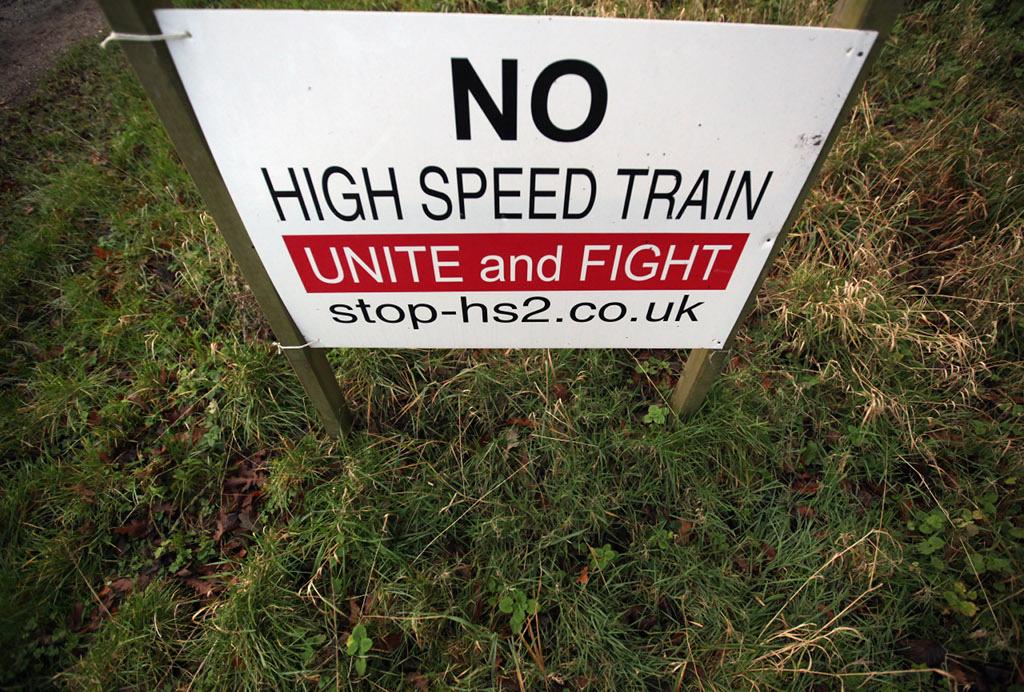Britain: You want infrastructure projects, we got infrastructure projects
Despite serious objections from his supporters, British Prime Minister David Cameron’s government gave the go-ahead today for a high-speed rail road between London and Birmingham
Britain's Tory-led coalition government gave the green light today to the biggest domestic rail project since the 19th century.
HS2 will link London to Birmingham, the country's second largest city. Distance: 140 miles. The cost: £32.7 billion ($50.6 billion). Completion date: 2026.
It is then supposed to be extended further north to Manchester and Leeds.
The trains will go at a maximum speed of 250 miles per hour and cut the journey time from Birmingham to London to 49 minutes. Currently the fastest time is 84 minutes.
This is a risky proposal for British Prime Minister David Cameron to endorse. Much of the proposed route goes through his supporters' constituencies. Rural, or ex-urban, and very beautiful, the Tory voters who live along the route are unanimously against the idea.
To accommodate their concerns about the landscape being scarred almost half the line will be buried in tunnels. That may not be good enough for those opposed to the project.
The other risk is the cost. Cameron has put in place an austerity budget in an attempt to eliminate Britain's structural deficit by 2015 (the government acknowledged in the autumn it would miss that target). Where the almost £33 billion pounds to build the railroad will come from isn't clear.
Still, it's a project that promises tens of thousands of jobs for British engineers and workers once construction gets started in 2016 … assuming those angry Tory voters don't hold the plan up in court. That means those working on London's huge Crossrail project, due to finish around that time will be able to move on to new jobs. Crossrail's final cost will be £16 billion ($24.8 billion).
It is interesting to think that a Conservative-led government, dedicated to shrinking government spending should be endorsing these kinds of infrastructure projects. Hard to imagine the Republican dominated American congress giving money to build railroads or funding a major new subway for New York or LA. Amtrak supporters, and Mayors Bloomberg and Villaraigosa must be green with envy.
The story you just read is accessible and free to all because thousands of listeners and readers contribute to our nonprofit newsroom. We go deep to bring you the human-centered international reporting that you know you can trust. To do this work and to do it well, we rely on the support of our listeners. If you appreciated our coverage this year, if there was a story that made you pause or a song that moved you, would you consider making a gift to sustain our work through 2024 and beyond?
